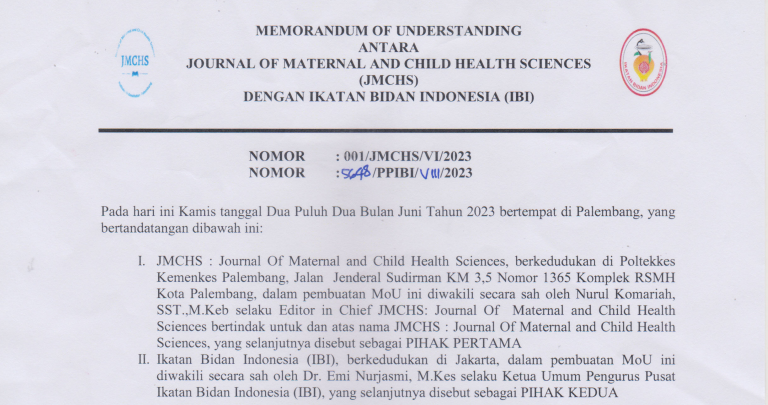Effectiveness Prenatal Yoga on Back Pain of Pregnant Women in Third Trimester
Abstract
Background: During pregnancy, there are usually a lot of complaints or discomforts that are common. One of them is back pain that occurs in third-trimester pregnant women. One effort to deal with back pain complaints is prenatal yoga. Prenatal yoga can flex the muscles around the spine and flexibility of the body.
Result: The results showed that before doing Prenatal Yoga trimester III pregnant women experienced moderate pain as many as 31 people (96.9%) while after doing Prenatal Yoga became mild pain as many as 29 people (90.6%). The statistical test used in this study is the Wilcoxon test and the significance value p = 0.00 (p> 0.05) means that there are significant differences in back pain before and after prenatal yoga. Using the result of this study, it is hoped that prenatal yoga techniques can be applied specifically to overcome complaints of back pain in third-trimester pregnant women.
Method: This study uses the One Group Pre Test-Posttest design using experimental methods. The sample in this study was third-trimester pregnant women who experienced back pain with a large sample of 32 respondents. This sample was taken using the Total Sampling method and the measuring instrument used was the Visual Analog Scale (VAS).
Conclusion: The conclusion of this study is the effectiveness of prenatal yoga on back pain in trimester III pregnant women.

This work is licensed under a Creative Commons Attribution-ShareAlike 4.0 International License.
Authors who publish with this journal agree to the following terms:
- Authors retain copyright and grant the journal right of first publication with the work simultaneously licensed under a Creative Commons Attribution License that allows others to share the work with an acknowledgement of the work's authorship and initial publication in this journal.
- Authors are able to enter into separate, additional contractual arrangements for the non-exclusive distribution of the journal's published version of the work (e.g., post it to an institutional repository or publish it in a book), with an acknowledgement of its initial publication in this journal.
- Authors are permitted and encouraged to post their work online (e.g., in institutional repositories or on their website) prior to and during the submission process, as it can lead to productive exchanges, as well as earlier and greater citation of published work












